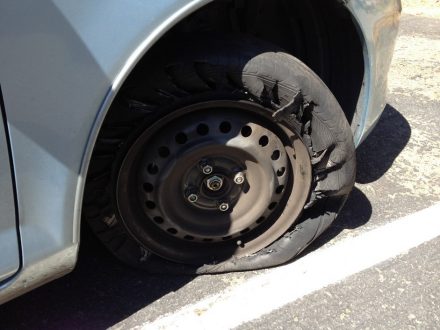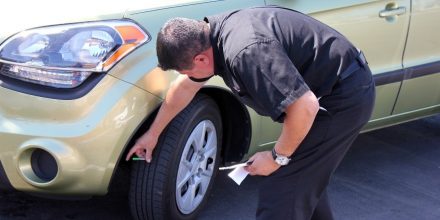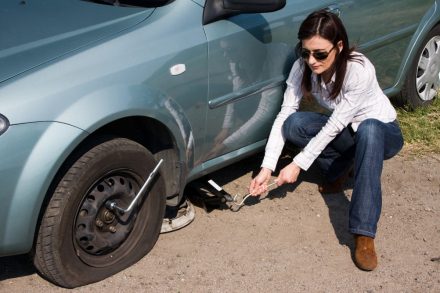 Despite the advances in safety standards/technology, tire blowouts can still happen. They are a rarer occurrence now, but when they do happen, drivers are less prepared to handle them properly. According to the National Highway Traffic Safety Administration, tire blowouts and flats result in nearly 11,000 collisions and 200 fatalities each year.
Despite the advances in safety standards/technology, tire blowouts can still happen. They are a rarer occurrence now, but when they do happen, drivers are less prepared to handle them properly. According to the National Highway Traffic Safety Administration, tire blowouts and flats result in nearly 11,000 collisions and 200 fatalities each year.
How to Prevent a Tire Blowout
The best way to deal with a tire blowout is to not have to deal with one. Prevention is key! Many tire blowouts are preventable with the correct maintenance and treatment. Although a blowout can happen at any time of the year, most of them happen between May and October when the road surface is the hottest. This could be the result of an under-inflated tire, extremely worn treads, or an overloaded vehicle. If you regularly inspect your tires for slow leaks, wear and tear, and proper inflation levels, you can drastically reduce your risk.

What Does a Tire Blowout Sound Like?
The first audible sign of a tire blowout, is a loud boom or bang of the tire popping. Next is a whooshing or hissing sound of air escaping the tire. Lastly, you’ll repeatedly hear a flapping or flopping of the deflated tire hitting the road.
What Does a Tire Blowout Feel Like?
When a tire explodes at a high speed, you will feel the vehicle slow down, and then you’ll feel a strong pull to the left or right depending on which side the popped tire is on. If it was a front tire, you will feel it mostly in the steering of your vehicle. With a rear tire, you will feel it more in the seat or body of the car. Whether the blowout occurred in the front or back, your response should be the same in either situation.
Handling a Tire Blowout at Highway Speed
- Stay calm and drive straight in your lane.
- Do not turn the steering wheel before the car has slowed down. Turning the wheel at high speed makes it more likely for your vehicle to spin out.
- As counterintuitive as it sounds, do not hit the brakes. Allow the drag of the popped tire to slow the vehicle to below 30 mph before attempting to turn the steering wheel.
- According to popularmechanics.com, you might want to consider pressing the gas for a few seconds instead. This is to stabilize the vehicle and to distract you from steering or pressing brake pedal before the vehicle has slowed down to a safe speed. The drag from the popped tire is so strong, it will actually prevent your car from accelerating.
This is all easier said than done, because you will have to ignore your natural reflexes to immediately steer and brake.
What to Do After a Tire Blowout

After a blowout, exit your vehicle only if you are safely off the road. Turn on your emergency flashers to alert others. If it is not safe to change the tire where you are, or you don’t know how, call for roadside assistance.
Beware: a spare is only recommended for emergencies and should not be driven on for long distances or at high speeds.
Here at Lantz Family Insurance Agency we are committed to providing our clients with quality insurance and superior customer service – including when disaster strikes. Should the need arise to file a claim, we’re ready to assist you in any way we can. Call us for a FREE, No Obligation Quote at 774-992-0789 or email info@lantzfia.com.

Peter C. Lantz, Owner/Agent
Peter C. Lantz (Pete) has been a Licensed Insurance Agent in Massachusetts for more than 10 years. He has worked for Arbor Insurance Brokerage, Inc. and USA Wealth Group, Inc. as an Insurance Broker and Financial Advisor. Pete has served in the United States Marine Corps Reserve. Pete has his Real Estate Brokers’ License, as well as Life and Health Insurance Licenses.
